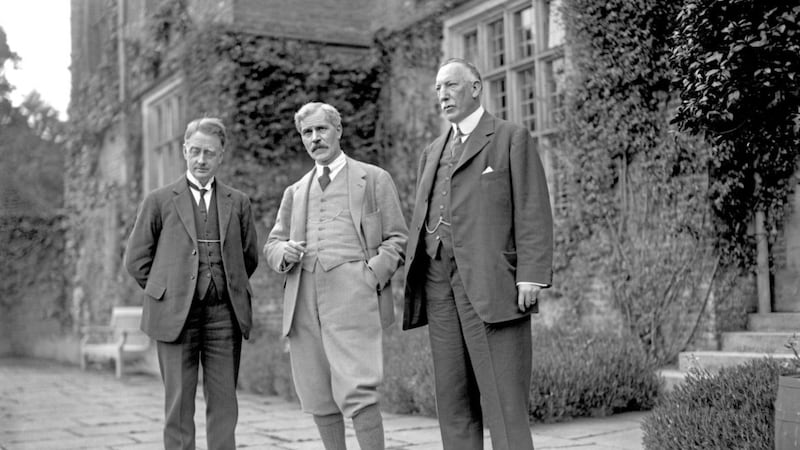Stormont’s latest annual budget was rushed through Westminster last week, with all 16 stages of its passage completed in three days flat. Total debate time in the Commons and Lords was around 90 minutes.
The usual complaint that Westminster has no interest in Northern Ireland was turned on its head, with bizarrely little interest shown here in this vital and totemic legislation, while MPs and Lords from Britain tried their best to insert concerns and suggestions into a process being rammed through before Tuesday’s dissolution of parliament.
We are in absurd denial about indirect rule, as three years of imposed budgeting makes clear. It does not suit Sinn Féin to complain too loudly about Westminster keeping the lights on and it would have been awkward for the DUP to flag up a budget that could have had an extra £1 billion, had the party cooperated over Brexit.
The latest funding voted through was a steady-as-it-goes allocation to every Stormont department, to maintain the ridiculous pretence that nobody with a mandate has taken any decisions.
How this looks beyond our shores was nicely captured by Conservative peer Lord Lexden, of Essex but once a lecturer at Queen’s University Belfast.
“Should we perhaps seek, through constructive constitutional thought, to make provision in these circumstances for some form of halfway house between full devolution and full direct rule, to which so many people are ill disposed?” he asked.
God bless that man for his kindly innocence. He was not in Belfast long enough to learn denial is always the halfway house that keeps our dispositions sweet.
Other MPs and Lords from Britain were equally perplexed by Northern Ireland’s lingering limbo and the refusal of the government to put it on a more accountable footing. Among the specific concerns they raised were the looming welfare reform cliff-edge, constraints on how social housing is funded, managing the financial impact of Brexit and the mounting crisis in Northern Ireland’s health service.
Labour MPs sounded particularly disinclined to let welfare recipients fall over the cliff at the legal deadline next March. Simon Hoare, Conservative chair of the Northern Ireland Affairs Committee (NIAC), made a point of agreeing and expressed frustration with the government’s “Groundhog Day” platitudes about getting Stormont back up and running.
The real cliff edge in sight is how much longer MPs will wait before insisting on more intervention.
Everyone at Westminster seems aware of the contentiousness of direct rule and there is a clear reluctance to let debate on the issue be led by the DUP. However, MPs and Lords from Britain have not mastered our ad hoc ability to sort ‘good’ intervention (abortion, same-sex marriage, historical institutional abuse compensation) from ‘bad’. They are increasingly taking these categories into their own hands.
Separately in Westminster, as the budget was being passed, NIAC was having some constructive constitutional thoughts on Northern Ireland’s health crisis.
The Committee published a report with a series of recommendations on avoiding an imminent NHS collapse, with the top recommendation being a move to three-year minimum imposed budgets, at least for health, so that officials can advance longer-term plans instead of just patching things up year by year.
However, Hoare added more direct intervention must still be taken within months.
Sinn Féin responded that any such intervention would only be acceptable via the Good Friday Agreement’s British-Irish Intergovernmental Conference.
This is in line with party’s insistence the conference provides “a form of joint authority”. In fact, it has no remit over devolved matters and the agreement would have to be fundamentally renegotiated for London and Dublin to take charge of health. It is an arcane hill for Sinn Féin to die on, having accepted abortion and same-sex marriage. But of course it is not Sinn Féin doing the dying.
NIAC is the true scrutiny chamber of indirect rule, comprising 10 Conservative and Labour MPs, three DUP MPs and independent unionist Lady Hermon.
This necessarily DUP-heavy composition limits its authority to represent Northern Ireland overall. Sinn Féin has testified before NIAC in the past but will not take the seats it is entitled to, despite claiming it uses its influence at Westminster everywhere except in the Commons.
If December’s election adds Alliance and SDLP members to the committee, its view on what constitutes ‘good’ intervention will carry significantly more weight.
One thing is for certain - indirect rule is on its last legs.









